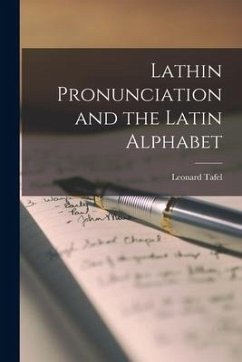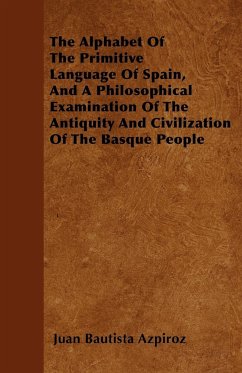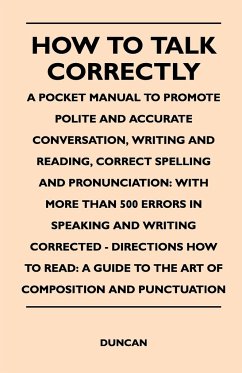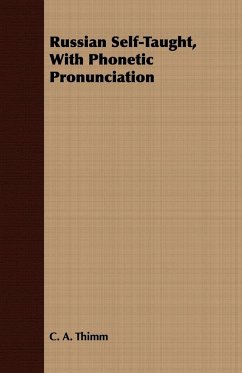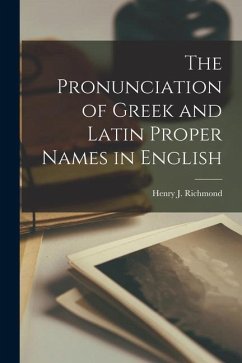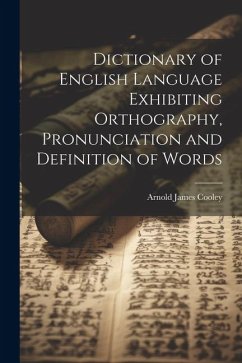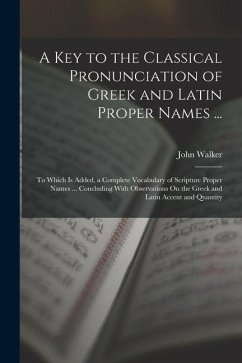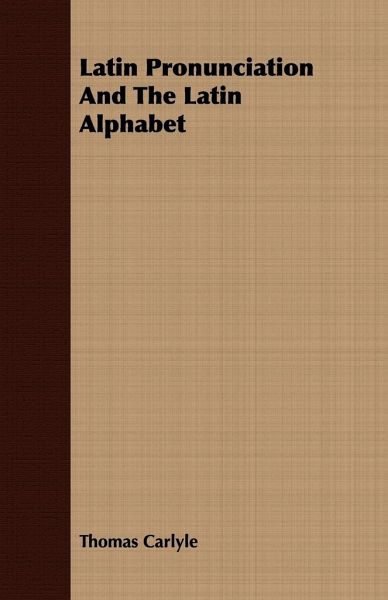
Latin Pronunciation And The Latin Alphabet
Versandkostenfrei!
Versandfertig in 1-2 Wochen
16,99 €
inkl. MwSt.

PAYBACK Punkte
8 °P sammeln!
WITHIN the last twenty or thirty years great progress has been made in the dominion of language as well as in all the departments of the arts and sciences. Before this time, the classical languages were a separate branch of study and of learned investigation, but by the efforts of Bopp and his school, they are now acknowledged to be members of one large family, the organic forms of which mutually supply and explain each other. Most idioms of Italy, even, are shown to be members of one common stock, by the import ant labors of Au frecht, Kirchhof, Mommsm, and other learned men, and the Latin it...
WITHIN the last twenty or thirty years great progress has been made in the dominion of language as well as in all the departments of the arts and sciences. Before this time, the classical languages were a separate branch of study and of learned investigation, but by the efforts of Bopp and his school, they are now acknowledged to be members of one large family, the organic forms of which mutually supply and explain each other. Most idioms of Italy, even, are shown to be members of one common stock, by the import ant labors of Au frecht, Kirchhof, Mommsm, and other learned men, and the Latin itself, far from being any longer regarded as a mere mongrel composition of Greek and barbarian elements, is now universally admitted, by the learned, to be of the same independent growth among the other Italic dialects, as the Hebrew among the Semitic. Highly important results, more- over, have been attained by the critical examination of Latin texts made by Ritsckl, Lhmann, Fleckeisen, and others, while floods of light have been shed on the whole history of the development of the Latin lan- guage, by the investigations of Diez, Fuch, and other philologists, who, starting with the Latin in the latest stazcs of its existence, have traced from it the begin- nings of the modern Romdnce tongues. Yet, with all this mass of new information, as our oldest Latin manuscripts were mere amended copies, dating from the times after Christ, many questions concerning the original orthography and pronunciation of the Latin remained still unsettled. New means were therefore devised by our scholars to supply these deficiencies...



